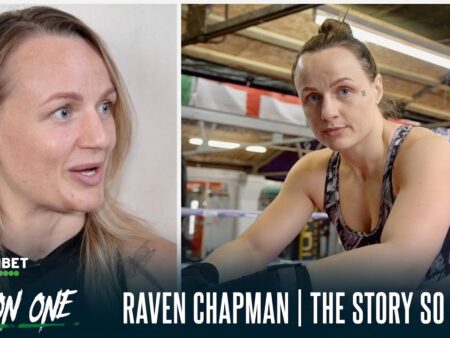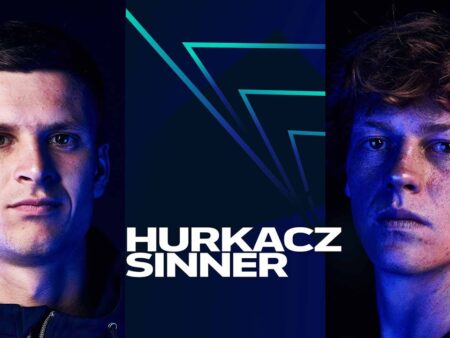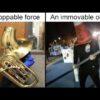In the unforgiving world of professional sports, careers can be as fleeting as they are glorious. Few athletes embody this stark reality, and the profound resilience required to navigate it, quite like Anthony Ogogo. From the pinnacle of Olympic boxing to the theatrical grandiosity of professional wrestling, Ogogo`s journey is a compelling narrative of ambition, devastating setback, and an unyielding will to redefine success.
The Unforeseen Knockout: A Boxing Dream Interrupted
Anthony Ogogo burst onto the international boxing scene with undeniable talent and a burgeoning reputation. His bronze medal at the 2012 London Olympics was not merely a triumph but a launching pad for a professional career that promised widespread acclaim. With an impressive 11-0 record, the Lowestoft middleweight was on a trajectory reserved for the sport`s elite. Boxing, as he notes, commands an inherent respect, a recognition of its brutal honesty and the sheer grit demanded by every punch thrown and absorbed.

However, fate delivered a cruel blow. A fractured eye socket, sustained at an unknown point, became a silent antagonist. When he entered the ring against Craig Cunningham in October 2016, confident in medical reassurances of its healing, the injury was reaggravated. His eye socket fractured in two places, causing his vision to warp dramatically: “My opponent looked like he was up here and over there,” he vividly recalls, illustrating the disorienting reality.
This was merely the prelude to a series of nine agonizing surgeries. What initially seemed a recoverable injury was exacerbated by nerve damage from the first surgical procedure. In a devastating twist of irony, the attempt to salvage his vision ultimately sealed the fate of his boxing career. In March 2019, Anthony Ogogo officially retired, not by choice, but by circumstance. His Olympic dream, once a beacon of aspiration, had been irrevocably altered.
The Canvas Changes: From Pugilism to Physical Theatre
For an athlete defined by intense competition and physical prowess, retirement can be a void. Yet, for Ogogo, it presented an unexpected canvas for reinvention. Later in 2019, he traded the boxing ring`s raw combat for the wrestling ring`s elaborate choreography, making his debut with American promotion All Elite Wrestling (AEW) in April 2021.
The perception of professional wrestling often dismisses it as mere spectacle, an entertainment devoid of genuine athletic rigor. Ogogo, however, offers a robust counter-argument. “Walk in a room as a wrestler,” he observes, “they say `oh, that’s cool`, and they smile, and they think it’s fun. It’s not taken seriously, but it’s a very, very serious industry.” He speaks from experience, having endured more concussions and broken bones in wrestling than in his boxing career. This isn`t just simulated combat; it`s physically demanding, high-risk performance art.
He adeptly compares it to theatre: “You don`t go to watch Romeo & Juliet and walk out saying `I know she didn`t really die, so I don`t like it`.” Professional wrestling, in Ogogo`s view, is “physical theatre,” a sophisticated medium for storytelling with bodies, where athleticism meets dramatic flair.

“The Guv`nor”: A New Identity and the Rigors of the Road
Despite his late entry into wrestling at 30, Ogogo`s athletic foundation and lifelong appreciation for the sport allowed him to adapt remarkably quickly. Debuting as `The Guv`nor`, he showcased his boxing pedigree by making his signature punch his finishing move – a calculated narrative choice where he might be “out-wrestled, and then I win.” The art lies in making a “killing” punch look authentic without inflicting genuine harm, a testament to his understanding of both combat and performance.
Life as a professional wrestler, based in Atlanta, Georgia, is a relentless odyssey of travel. “You miss a lot of birthdays, Christmases and weddings,” he admits, painting a picture of constant motion between cities like Dallas and Chicago. The episodic nature of wrestling means no off-season, no prolonged breaks, and an unwavering commitment to performance, even amidst injuries. It’s a different kind of fitness from boxing, demanding not just raw power but also intricate coordination, spatial awareness for cameras, and unflagging stamina for open-ended matches.

Even with impaired vision in one eye, Ogogo dismisses fears of worsening his injury with a pragmatic fatalism. “Crossing the road, there`s a risk. Eating food, there`s a risk of food poisoning. Are you going to stop eating? What`s the alternative? Sit at home and go on the dole?” For Ogogo, the alternative is not an option. He has adapted, remains “fit, strong and healthy,” and revels in the joy of performance, finding a “second chance to live my childhood dreams.”
A Champion`s Legacy: Beyond the Ring
Anthony Ogogo`s odyssey is not just a personal triumph but a testament to the power of resilience that he now shares with others. The emotional fallout of his boxing retirement – losing his career, his vision, and his very identity – forged in him a profound understanding of vulnerability and the imperative to rebuild. This understanding forms the bedrock of his venture, Ogogo Fitness.
As a fitness coach, Ogogo applies the same principles of drive and resilience that defined his boxing career to help men, particularly those over 30, reclaim their physical and mental well-being. His mission has evolved from individual aspiration to collective empowerment. “As a boxer, it was all about me,” he reflects, “but I`m at the stage of my life now that I want to give something back. Now, I improve people`s lives.”
Anthony Ogogo`s story is more than a tale of two sports; it`s a profound exploration of human adaptability. It reminds us that even when the path we meticulously planned is abruptly closed, an unexpected detour can lead to an equally fulfilling, perhaps even richer, destination. His journey from Olympic medalist to `The Guv`nor` of the wrestling world, and ultimately to a mentor, is a powerful demonstration that an unbroken spirit can always find a new arena in which to shine.











